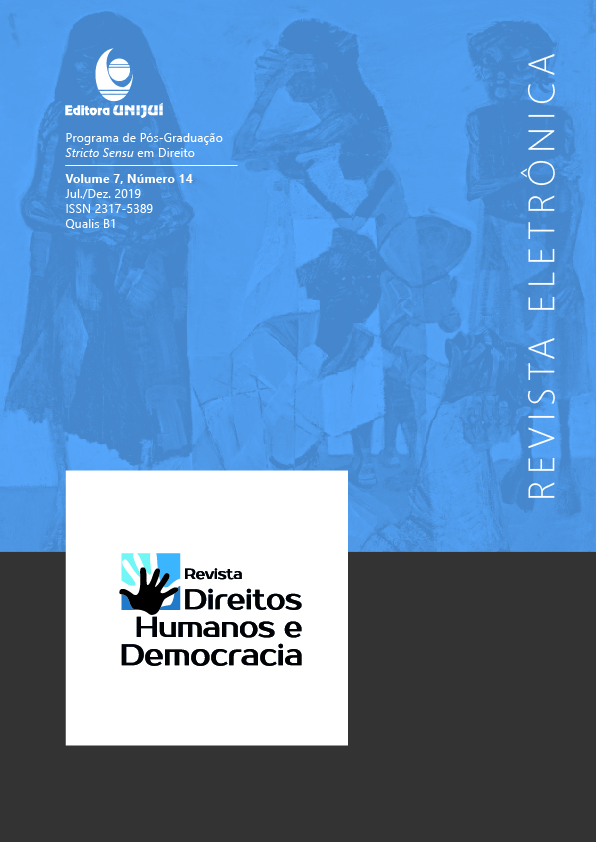MOVIMENTO FEMINISTA E RECONHECIMENTO DAS DONAS DE CASA NA OBRA DE CLARICE LISPECTOR
DOI:
https://doi.org/10.21527/2317-5389.2019.14.232-248Keywords:
trabalho doméstico, reconhecimento, movimento feministaAbstract
This article brings up the absence of recognition of the women who do unpaid domestic work, full time, or in double shift. Therefore, it is taken as a basis the tale “A imitação da rosa”, presented in the book “Laços de Família”, by Clarice Lispector, with the objective of showing the conflict faced by several women for not having the recognition of private space and domestic work, a situation still lived in the XXI century. It is analysed the theory of recognition developed by Axel Honneth and Nancy Fraser, expressing their contradictions and trying to make them compatible, in a way that permits the resignification of these women. Finally, it will be raised the importance of their self-recognition in the articulation of a feminist movement that searches to reach this purpose, allowing their participation on a par with others in the social sphere.
Downloads
Published
How to Cite
Issue
Section
License
By publishing in the Revista Direitos Humanos e Democracia, authors agree to the following terms:
Articles are licensed under the Creative Commons Atribuição 4.0 Internacional (CC BY 4.0), which allows:
Share — copy and redistribute the material in any medium or format;
Adapt — remix, transform, and build upon the material for any purpose, including commercial use.
These permissions are irrevocable, provided the following terms are respected:
Attribution — authors must be properly credited, with a link to the license and indication of any modifications made;
No additional restrictions — no legal or technological measures may be applied that restrict the use permitted by the license.
Notices:
The license does not apply to elements in the public domain or covered by legal exceptions.
The license does not grant all rights required for specific uses (e.g., image rights, privacy, or moral rights).
The journal is not responsible for opinions expressed in the articles, which remain the sole responsibility of the authors. The Editor, with the support of the Editorial Committee, reserves the right to suggest or request modifications when necessary.
Only original scientific articles presenting research results of interest, not previously published or simultaneously submitted to another journal with the same purpose, will be accepted.
References to trademarks or specific products are intended solely for identification purposes and do not imply any promotional endorsement by the authors or the journal.
License Agreement: Authors retain copyright over their articles and grant the Revista Direitos Humanos e Democracia the right of first publication.













